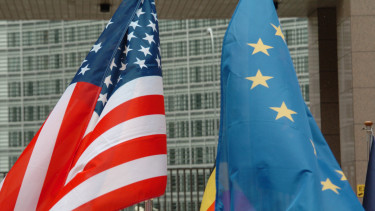EU funds
Hungarian government allocates all available EU funds, then hits the breaks
One of the lowest fiures of the last few years
Portfolio’s database shows an increase of HUF 57.5 bn in the volume of new EU funds disbursed in April, including the winners of the Rural Development Programme, which is one of the lowest figures of the last few years. This slow pace is completely understandable in light of the fact by early April the government has practically allocated more than 100% of the EU funds available in the current seven-year programming period (at current the current EUR/HUF exchange rate), as disbursement reached HUF 9,211 bn versus the theoretically available HUF 9,184 bn budget.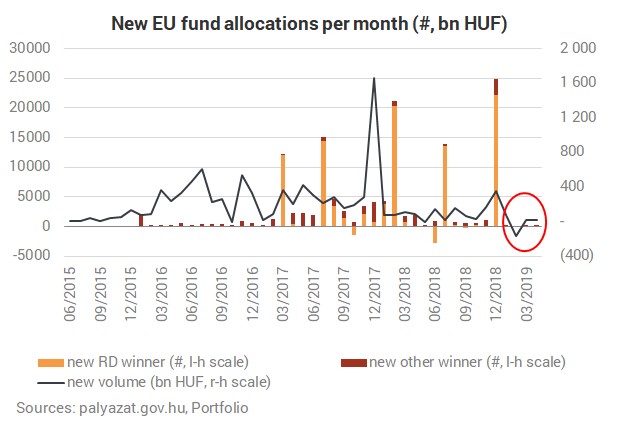
What about the EDIOP/GINOP?
Detailed figures show that a total of 135 winners were announced in the Economic Development and Innovation Operational Programme (EDIOP/GINOP) after 124 announced in March. In these two months, winners were announced in about a dozen tenders, including one aimed at supporting young people to start a business, another one for the support of renewable energy developments, and one for the assistance of infocommunication and mobile developments. In early May, 135 companies won EU funds in apprenticeship schemes, and another two dozen in other tenders.Szeged laser centre in focus
One of the priority research projects in the GINOP is the Extreme Light Infrastructure Attosecond Light Pulse Source (ELI-ALPS) laser research centre in Szeged, which is to be supported by HUF 32 bn + HUF 40 bn in two programming cycles. Out of the HUF 40.05 bn grant awarded in the 2014-2020 cycle, HUF 33.3 bn have been disbursed so far, as the key equipment of the apparatus is not ready yet.Dispute regarding the ELI-ALPS became heated when three members of the institution’s international board resigned in March, saying that the Hungarian government went around the research community and made a political decision on a HUF 20 billion gigantic project. In response, László Palkovics, Minister of Innovation and Technology, said researchers misunderstood the situation and the motivations of the ministry, and he also urged researchers to choose advocating support for the institution and organising a higher international utilisation of the centre over criticising the measures.
The community of physicists of the Hungarian Academy of Sciences remarked that although the ELI-ALPS has not become a project developed with the participation of a wide circle of domestic and international researchers, the reason behind that is that the project “is in the hands of local researchers that nurture a good relationship with politicians." Another problem, they said, is that due to failings during the planning and the construction phase the technical content is inferior to what had bene expected, and the most exciting (high repetition rate and the shortest output pulse width) laser beams are not available yet. This endangers the original scientific mission of the ELI-ALPS.
What about the disbursements?
It is not only that the volume of newly allocated funds is unusually low, but the rate of new monthly disbursements is also muted; our data show “only" HUF 88 bn paid in April. This boosted total disbursement to HUF 5,854 bn by the end of the month, which corresponds to 64% of the HUF 9,184 bn available in the current 7-year programming period.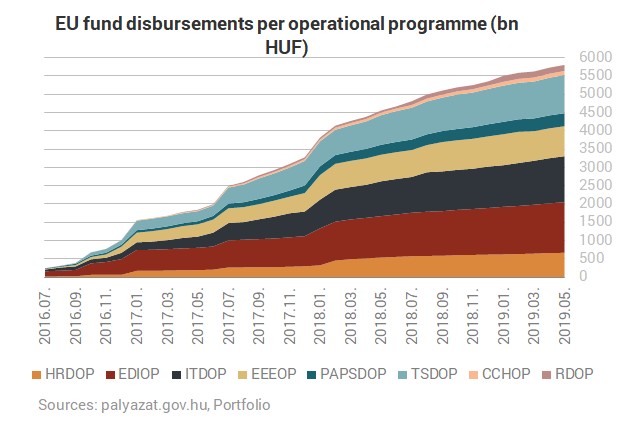
One of the accounting disputes dragging out is that in the Environment and Energy Operational Programme (EEOP/KEHOP) and the Territorial and Settlement Development Operational Programme (TSDOP/TOP) Hungarian authorities have until recently not required interim payments and due to risks relating to the annual conclusion of programmes, and the Commission’s objections signalled in relation to the procurement monitoring system have not been remedied satisfactorily.
In the meantime, it is seemingly reassuring that the Brussels payment meter ticked up by about EUR 100 million (cc. HUF 32 bn) to EUR 8.3 bn in April, which was related exclusively to the transfer of invoice-based interim payments. The EUR 8.3 bn the Commission transferred is about 33% of the EUR 25 budget available in the current programming period. This puts Hungary in a slightly more advantageous position than the EU average and way ahead of the Visegrad Four countries.
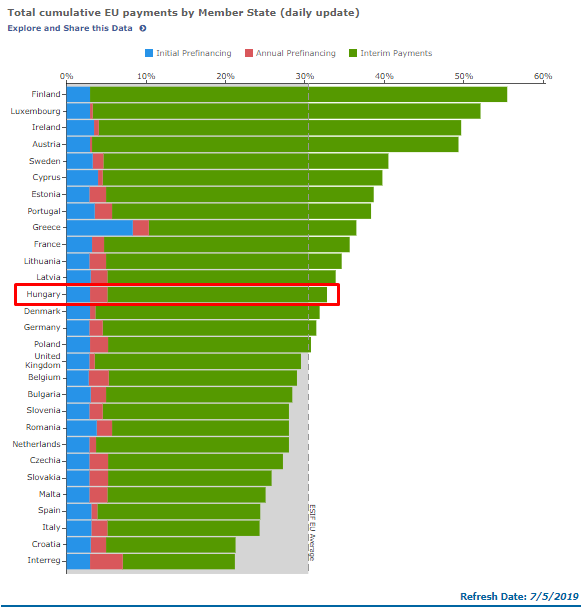
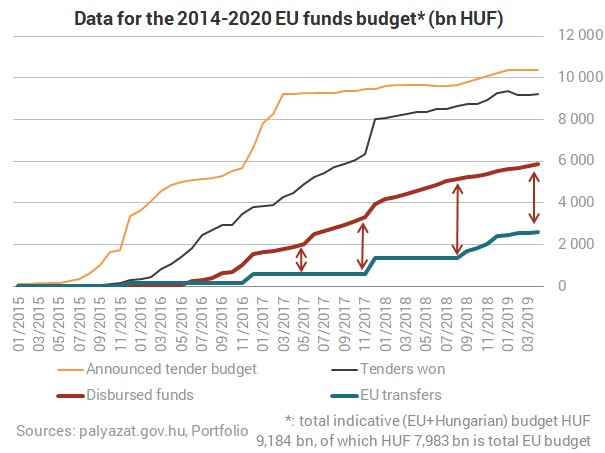
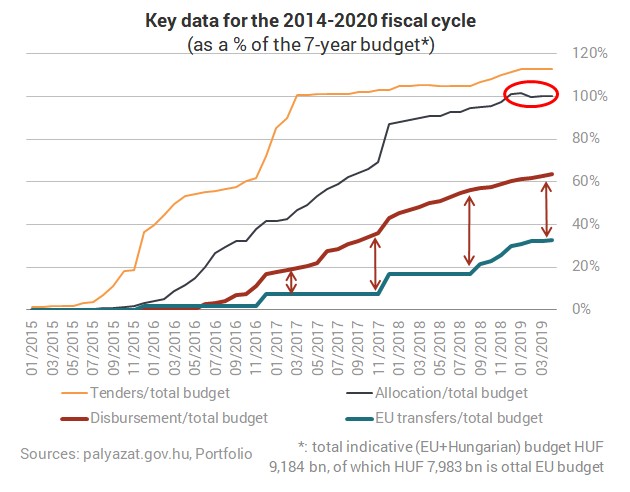

This article is part of the work programme titled "The impacts of EU cohesion policy in Hungary - Present and Future" which is carried out by Net Média Zrt., the publisher of Portfolio.hu, between 1st April 2019 and 31st March 2020 with European Union financing. The views in this article solely reflect the opinions of the author. The European Commission as the funding entity does not take any responsibility for the use of information presented in this article.


